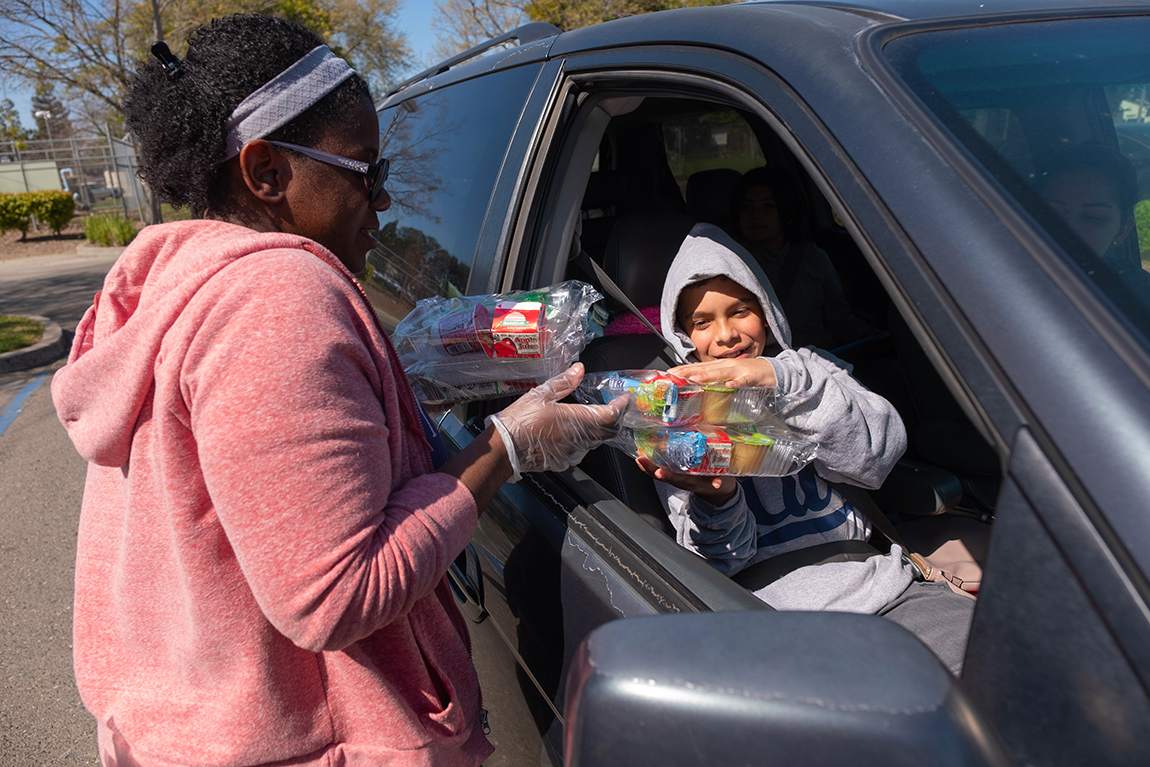
By Cynthia Hubert
Families in the Sacramento region are having trouble juggling parenting, home schooling and remote work during the prolonged COVID-19 pandemic, new research by Valley Vision and Sacramento State has found.
The nonprofit civic leadership group and Sac State’s Institute for Social Research, in partnership with Capital Public Radio, this week released the results of the second of three comprehensive surveys about the pandemic’s regional impact.
Since the first COVID-19 survey, conducted in May, the pandemic has taken an increasing toll on life in California. In June, the state imposed an order mandating face coverings, and the government has continued to limit public gatherings and access to indoor spaces. Many employees and students have been forced to work from home since March.
Results of the latest survey, taken in September, suggest the pandemic has changed lives in the Sacramento region in ways that go far beyond health concerns. It has caused significant financial hardships and deeply affected family and work lives. Parents of young children have been particularly challenged by the sudden pivot to home schooling and remote employment.
Seventy-four percent of survey respondents said the pandemic “poses a threat to the entire population,” not just people who are elderly or medically fragile.
People of color expressed the highest levels of concern about the virus’s impact on personal finances, job security, and access to testing and health care. Compared with the May poll, a higher percentage of all respondents reported having difficulty obtaining medical services and supplies.
“I can’t get regularly scheduled medical visits,” one participant said in response to a question about the biggest worries during the next six months.
“My access to medical care, despite my insurance not changing, has declined greatly,” said another.
“I have opted not to go for routine medical care” because of worries about virus exposure, answered a third.
“Some people’s lives are relatively unscathed, but others are living on the edge, without a cushion, and these are the ones who really are showing signs of stress."
The pandemic is significantly complicating home life, the survey suggests.
“Some people’s lives are relatively unscathed, but others are living on the edge, without a cushion, and these are the ones who really are showing signs of stress,” said Shannon Williams, director of the Institute for Social Research.
“Some people can work at home fairly easily,” Williams said. “But if you are an hourly worker, or a shift worker, that complicates things like child care, schooling, health care, really everything. Some families have their systems in place and are adapting well, but others are really struggling.”
More than 60% of survey respondents with children under age 18 in their households said having children at home instead of in school or day care is negatively affecting their parents’ ability to work. More than a third have seen a reduction in household income.
Parents also expressed concern about their children falling behind academically and their inability to access services such as school lunches or counseling.
Some respondents expressed strong feelings about the impact of distance learning on their families.
“Keeping my 16-year-old motivated to do distance learning is wrecking my whole life,” one said.
“Distance learning is atrocious, especially when working parents are juggling full-time jobs. This is unsustainable,” said another.
Among the survey’s other findings:
- Older people are wearing face coverings more consistently than younger people; and more women than men are consistently using face coverings and practicing physical distancing.
- Fourteen percent of respondents had been tested for COVID-19 at the time of the survey; 4% had a positive test, and 41% knew someone outside of their household who had tested positive.
- Two-thirds of respondents reported a reduction in income because of the pandemic.
- Seventy-three percent said they were concerned about the physical or emotional well-being of children in their household, and a vast majority reported elevated levels of stress or anxiety.
- More than 60% of respondents who are parents said they were worried about their child falling behind academically.
The report is the seventh public opinion survey in recent years in which Valley Vision has collaborated with Sac State.
Capital Public Radio, which is licensed to the University, is using the surveys to produce a series of stories about the coronavirus and its impacts on the region.
Survey results came from a panel of 2,518 residents of El Dorado, Placer, Sacramento, San Joaquin, Solano, Yuba, Sutter and Yolo counties. Respondents represent a scientifically valid microcosm of the region, according to researchers.
The authors hope their work will help guide leaders through the challenges ahead and set priorities for the future.
“As ever, it is critically important to see how lives have changed, to understand where there are opportunities for learning and growth, and to know where we as a region need to invest resources, time, and energy for recovery efforts for the people of our region,” the report says.
To read the full report, go to valleyvision.org.